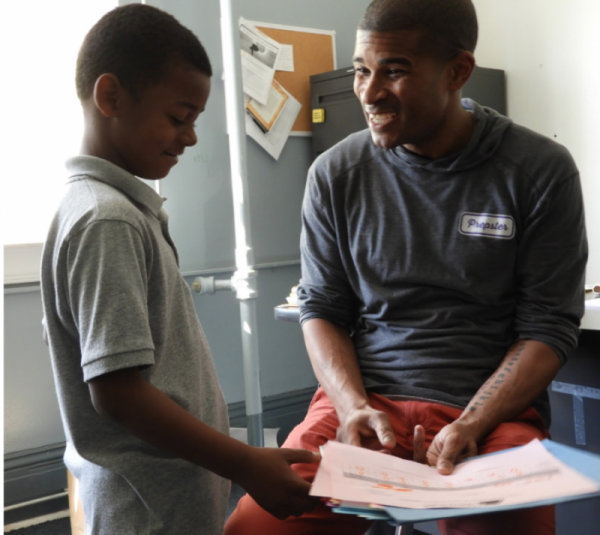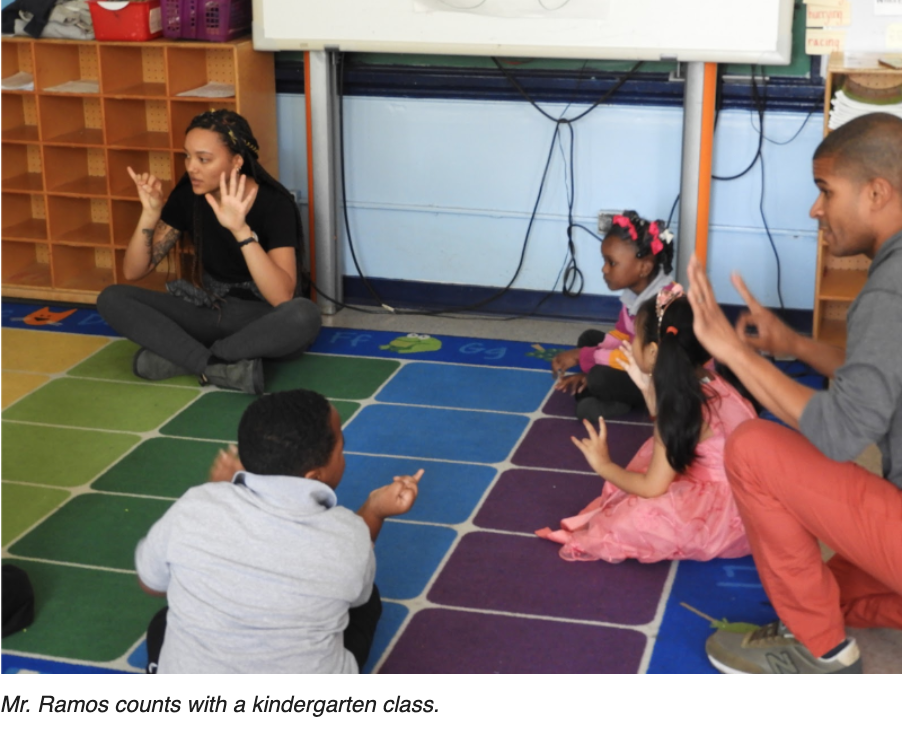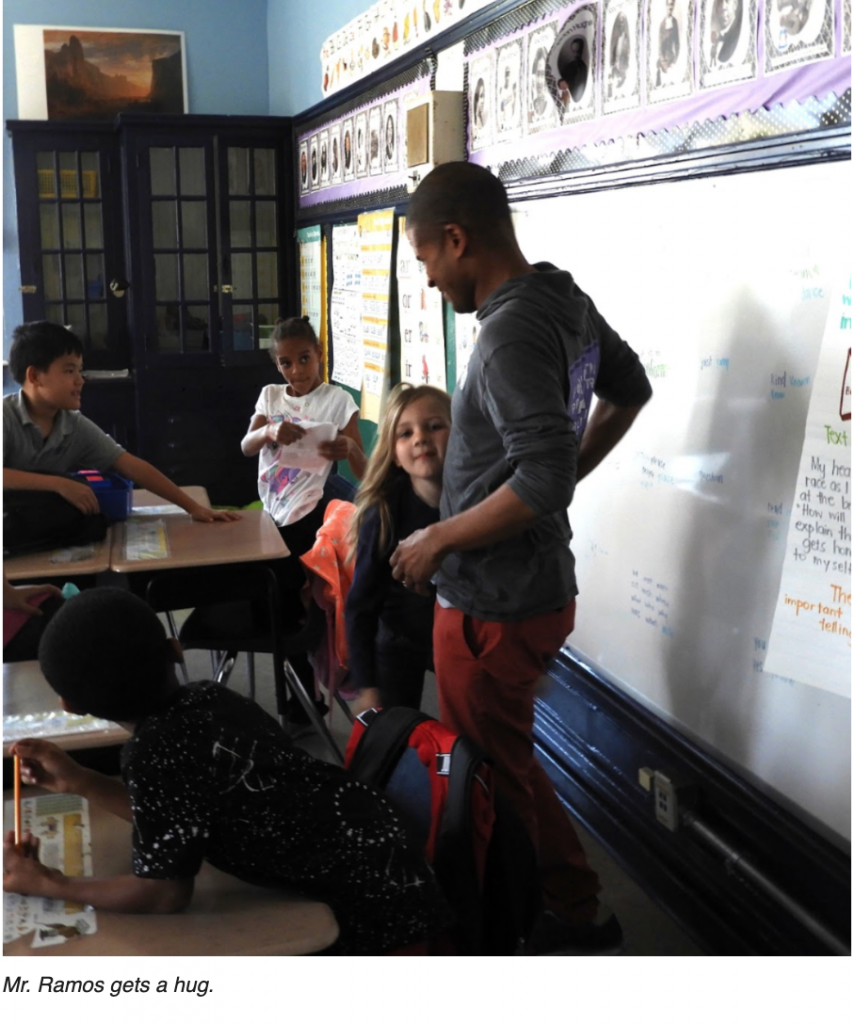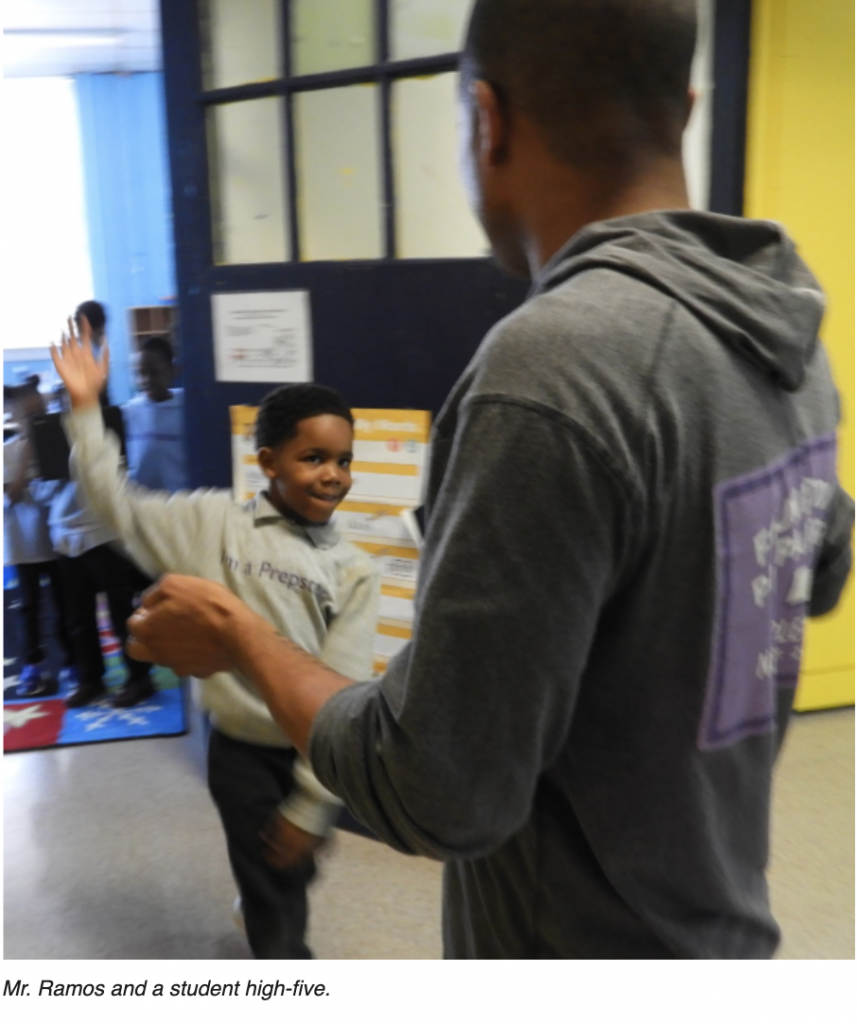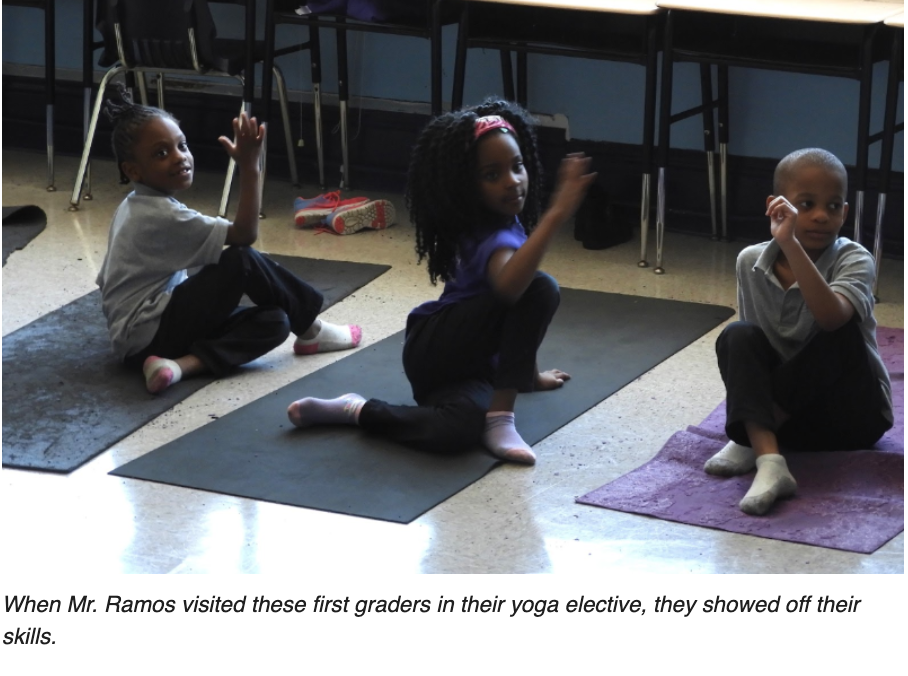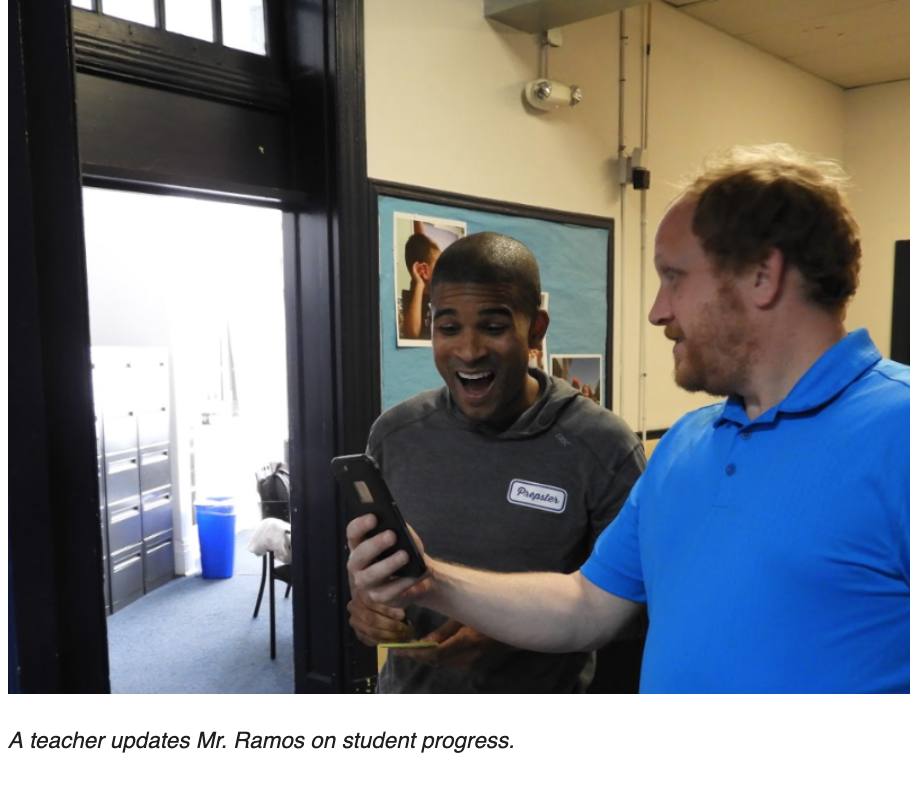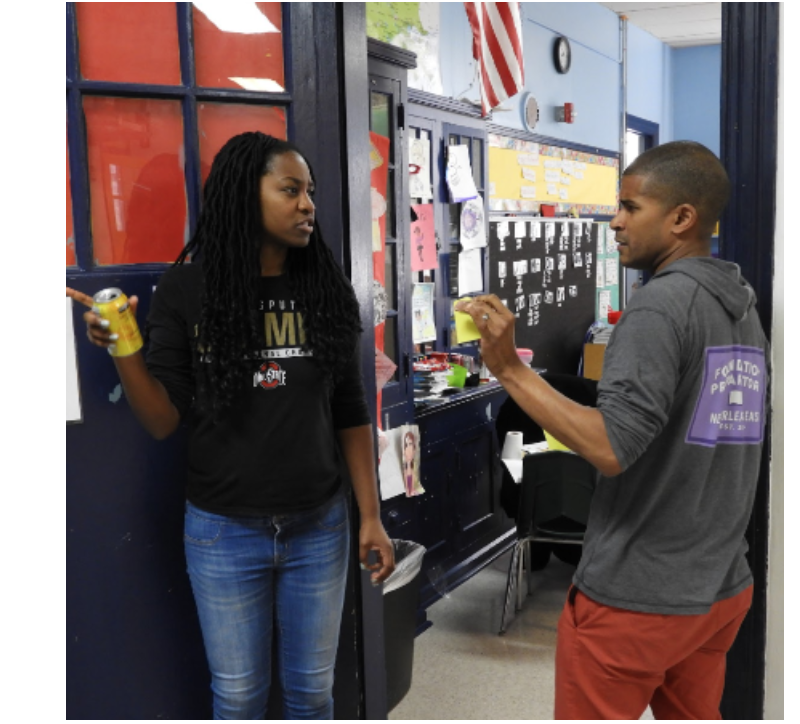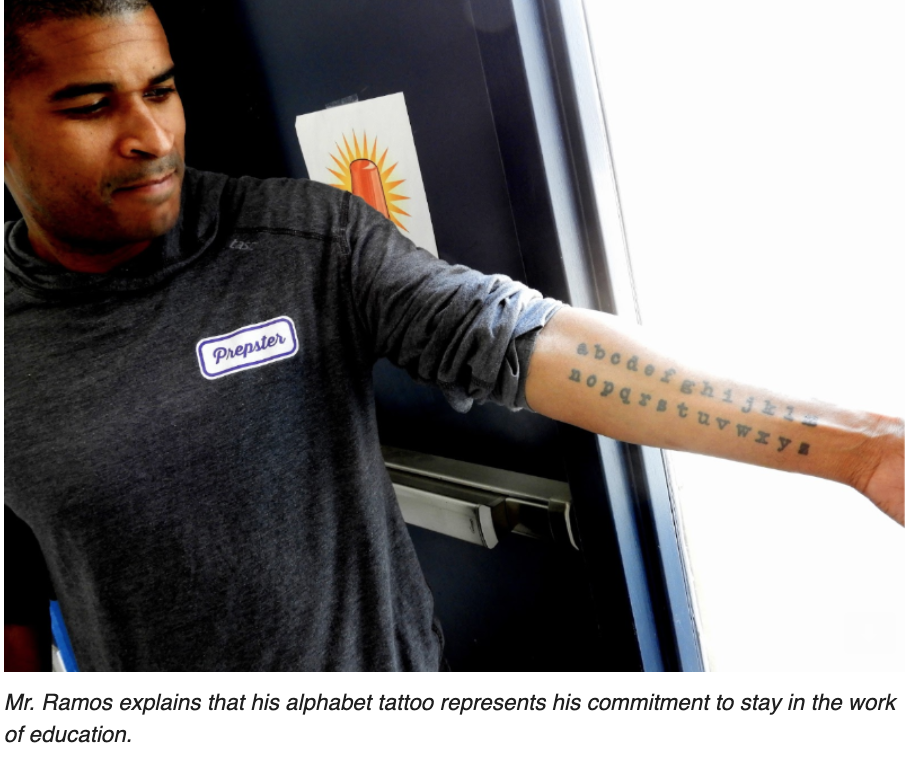Foundation Preparatory Charter School opened in 2015. Today, it educates students in grades K-4, and it will expand to K-5 next year.
Jovanni Ramos has been an educator for nearly 15 years; today, he is the school’s principal. We spent the afternoon learning about everything from his school’s educational philosophy to the alphabet tattoo on his left arm.
“I had a really good education growing up, in public school in New York and New Jersey. When I was in first grade, my parents separated. For a few years, school became a safe place – a refuge of consistency and joy that was lacking at home. It was a community where I felt like I belonged and wanted to come back to each morning. But parents getting divorced – that’s a fraction of some of the stuff that some of our students see here. I want to create that same safe place for them, so they also love coming to school.”
“I look forward to seeing a lot of smiling—staff smiling at each other, children smiling. I look forward to seeing our kids engaged in their classes, and being able to tell they love being in school. For instance, I see some kids leave their classroom and do this sort of run-skip to the bathroom. They can’t run, so they do this really intense skip, because they want to get back to class as fast as they can.”
“We have a strong focus on social emotional learning. We want to lead a school where we are talking about mental health and getting kids into a place where they are mentally able to learn. We believe in addressing trauma, not shying away from it. We have high quality social emotional learning curriculum, and we partner with the Institute for Women and Ethnic Studies (IWES). We can’t get a student to their grade level benchmark if we don’t support them and address the things that are holding them back.”
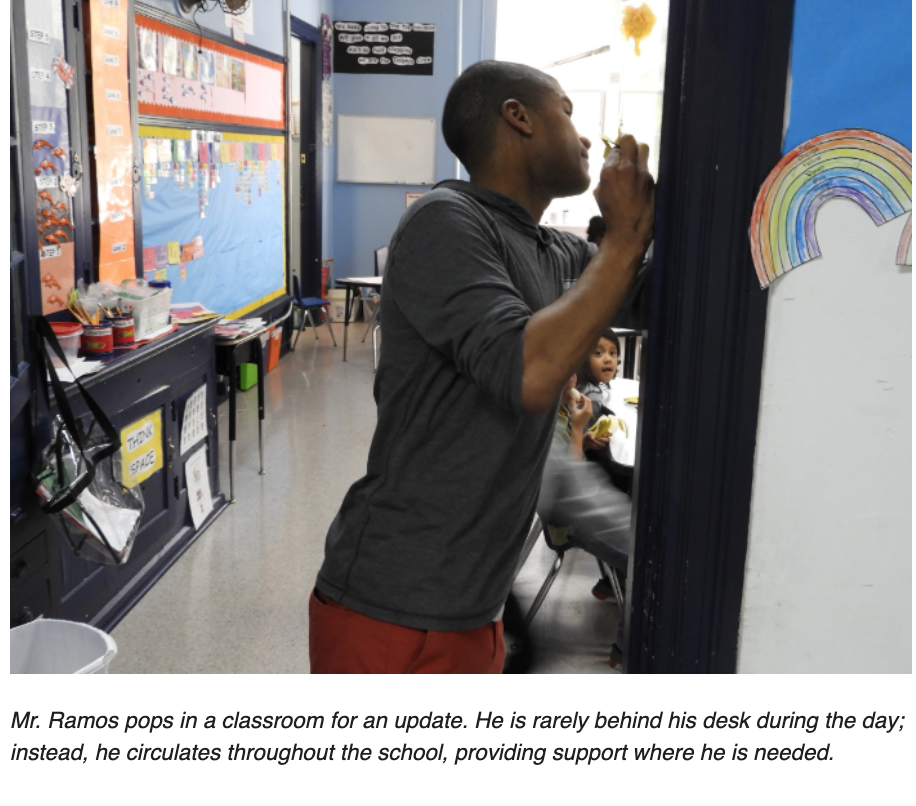 “School leadership is a lot like teaching, except you are working more with adults. Just like in a classroom, all the teachers have different personalities, triggers, strengths, and weaknesses. I need to respond to their social-emotional needs and give them support, love, belonging, and safety. If we’re asking teachers to provide that for kids, we need to make them feel that way, too. I like being able to talk to teachers about academics and data, but I like to connect with them on a personal level, to know about what’s going on with their life and family.”
“School leadership is a lot like teaching, except you are working more with adults. Just like in a classroom, all the teachers have different personalities, triggers, strengths, and weaknesses. I need to respond to their social-emotional needs and give them support, love, belonging, and safety. If we’re asking teachers to provide that for kids, we need to make them feel that way, too. I like being able to talk to teachers about academics and data, but I like to connect with them on a personal level, to know about what’s going on with their life and family.”
“I want to tell students and teachers, you need to practice self-compassion and have patience with yourself as you learn and grow. You don’t need to be perfect, but you need to grow. Growing can be really hard and sometimes it can hurt, but it is essential in becoming our authentic, best selves.”
